Let's discuss Russian economy. Many underestimate its dependency upon technological import. Russia's so deeply integrated into Western technological chains that severing these ties will lead to its collapse. Sanctions are already effective and can be made even more efficient🧵 

Some argue "Russia doesn't produce anything". Not quite. Although industrial goods plas little role in its export, it produces a lot for internal market. This is a 1ГПКС mining machine produced by a Копейский машзавод - monopolist on mining machines for potassium and coal mines 

Owner of this factory isn't a mafia boss. He's an engineer who worked for 20 years designing mining machines, has 41 patents, etc. BUT. What equipment do they use to produce these machines? An industrial machine MORI SEIKI VL-553 II - made by a German branch of a Japanese company 

This shows how deeply Russia is integrated into the Western technological chains. What Russia produces is produced on Western industrial machines, with Western technologies, Western software and with Western details. That ofc includes military industry which uses this all, too
Consider Diana Kaledina, CEO of Baltic Industrial Company which makes industrial machines for military plants. She says Russia doesn't produce bearings, ball screws, drives, CNC systems, spindles. So she has to import it all, although as a military supplier she isn't supposed to 

Ofc government pressures producers to be self-reliant and independent upon import. However, import-substitution (импортзамещение) is 95% PR. Producers and mid-ranked officials pretend to do "import-substitution" because Putin tells so. For this fake work they get real awards 
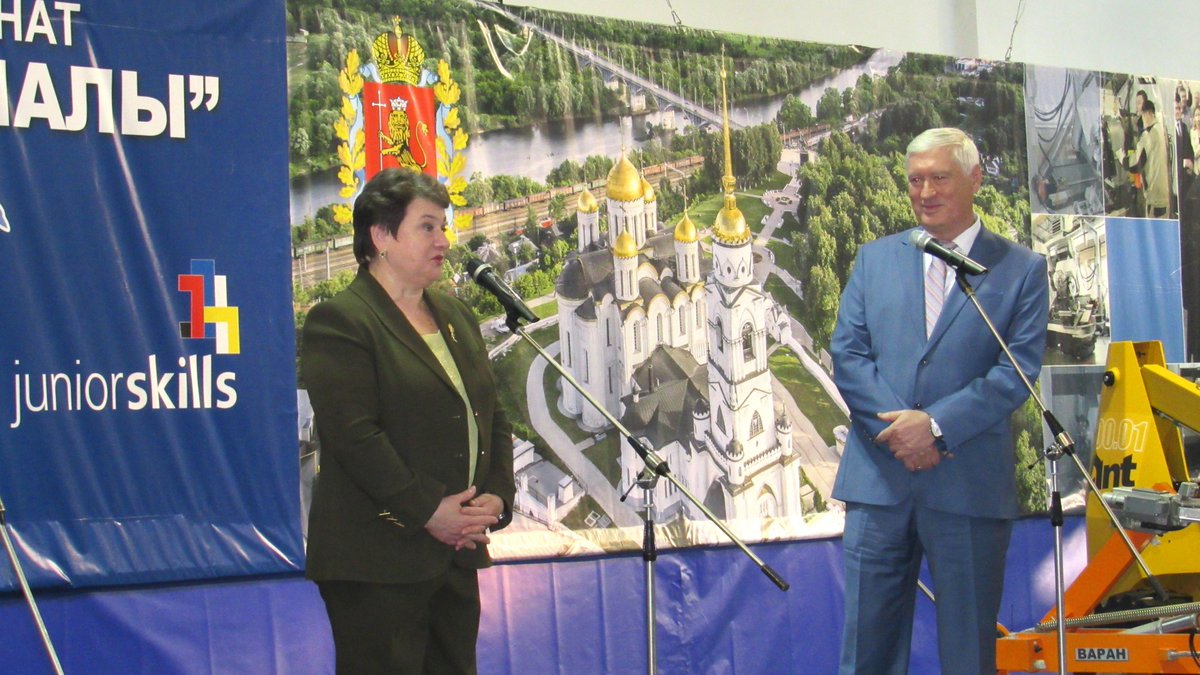
Consider Svetlana Orlova, governor of Vladimir. In 2017 she presented new tractor designed and produced by a local factory under her wise leadership. A CEO wouldn't shut up about how much she inspired them all and guided to this great accomplishment in import substitution 

"Our governor can guide, can inspire, can command. Several of our main branches of production are organised by her direct orders. One of her last commands is to make our own tractor. It is a huge work of scientists, engineers technicians for the last two years" said CEO Lebedev 

President Putin ordered to launch import-substitution. Governor Orlova obeyed and commanded a local factory to create a Russian tractor. CEO obeyed and engineers designed a new amazing machine АНТ 4135F. That's how Russian vertical of power works 

And yet, Russian tractor АНТ 4135F isn't Russian. It's a Czech tractor Zetor Forterra 135. I wanna clarify, it is not a copy of a Czech tractor. It literally *is* a Czech tractor. Russian plant buys tractor kits in Czech Republic, assembles them and pretends they're home produced 

Here you see governor Orlova in Brno, Czech Republic. What is she doing there? Well, she's buying kits for her home-produced tractors. In 2017 she bough 100 kits from Zetor Tractor company, in 2018 - 450. That's how she's import-substituting. Putin must be proud 
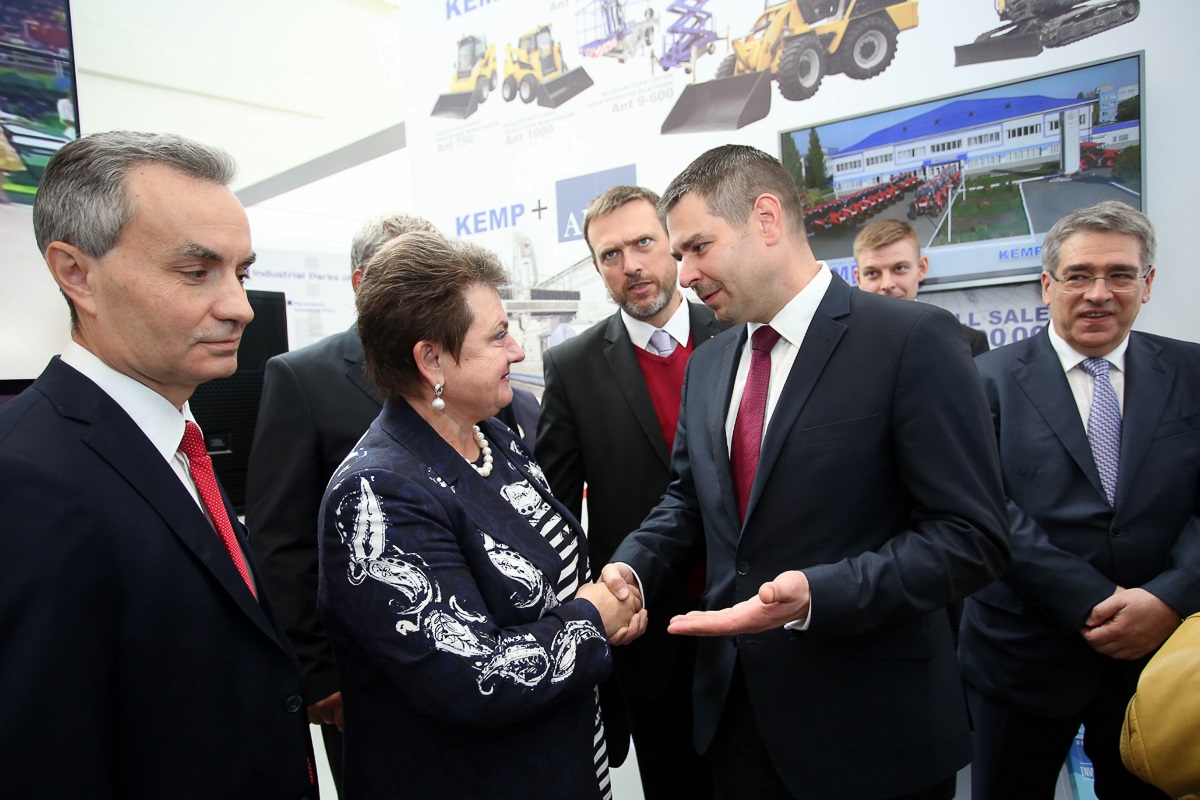
Of course, it was all investigated. Of course, dishonest CEO of Russian factory was arrested. Fortunately, they found out that the governor was innocent & didn't know about CEO's shady schemes. So she continued her hard work developing a new home-produced tractor - Vladimirets 
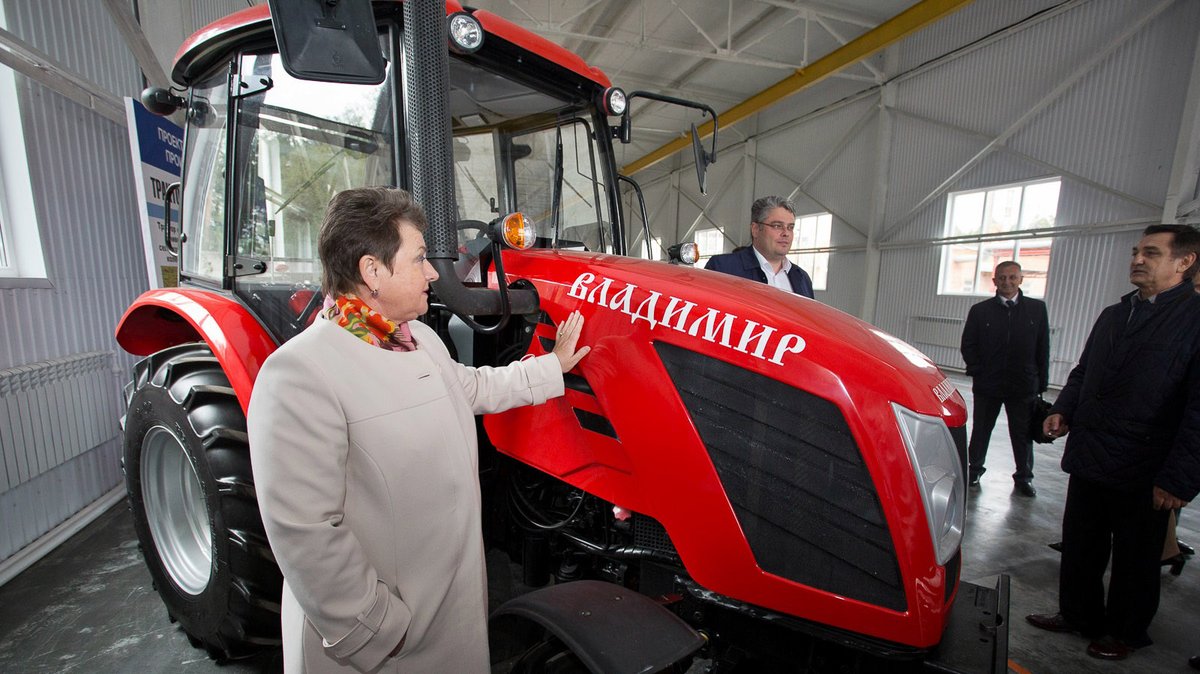
Fortunately her patriotism and hard work were well-noticed by Putin and he promoted her. Now she's an Auditor of the Accounts Chamber of the Russian Federation. She'll be checking the transparency of other branches of government and make sure they use government funds efficiently 
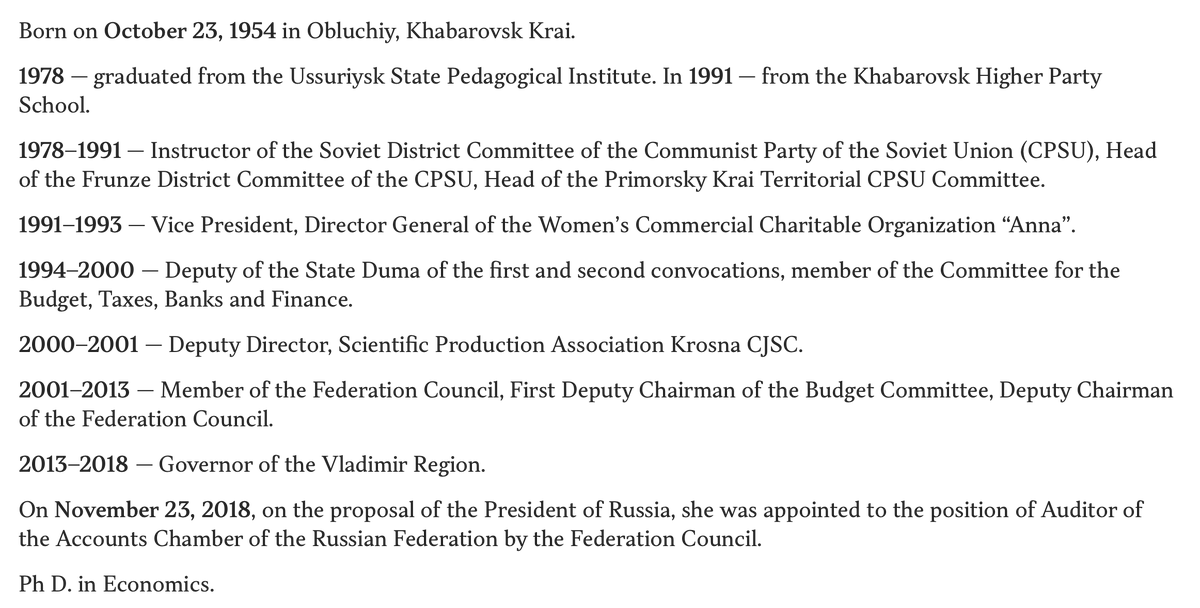
That's how social mobility works in Russia. Bullshiters are actively promoted. Just pretend to work on import substitution, share stolen cash with influential people, and go up. Now *you* check financial transparency and prevent corruption. Your henchmen go to jail but who cares 
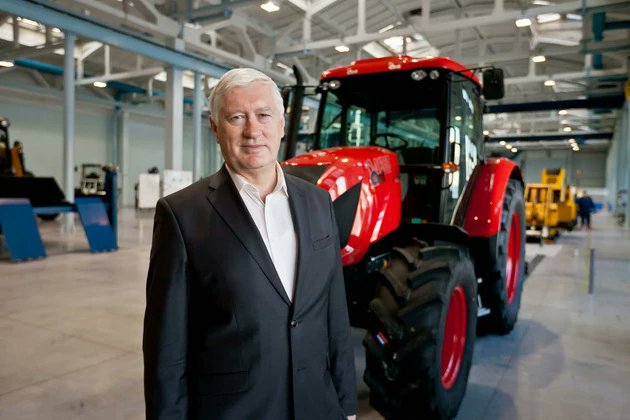
Now you can ask. Russians are good in sciences and very good in math. Russian engineers were doing great in Soviet era & are successful abroad. How come Russia can't produce anything competitive on the world market? Apparently it's not a technical skill that is a limiting factor 

Let's return to avocados, they give an answer to this question. Have you ever heard of blood avocados? They're called "blood" because almost all avocado production in Mexico is controlled by cartels. Thus when buying Mexican avocados you are directly funding the organised crime 
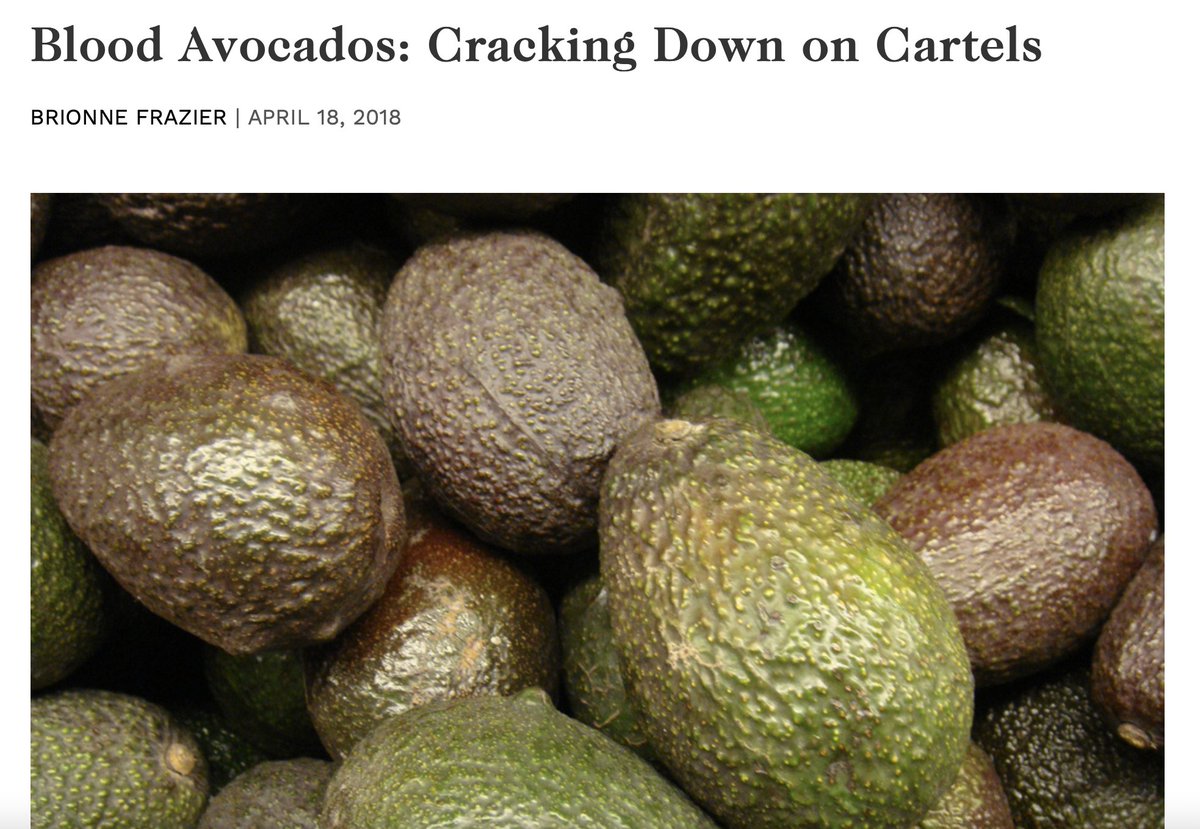
Many misunderstand what "cartels" look like. They imagine ragged hobos with machetes. Nope. Cartels look like this. These are fighters of Jalisco cartel who are cheering the name of their gang boss - El Mencho. They look like an army. Because they are
Mancur Olson conceptualised state as a gang. On its early stages it's a roving bandit: criminal group that kills, burns and pillages not caring of negative externalias. But when it settles down, it becomes a less destructive stationary bandit. That paves a way for civilisation 
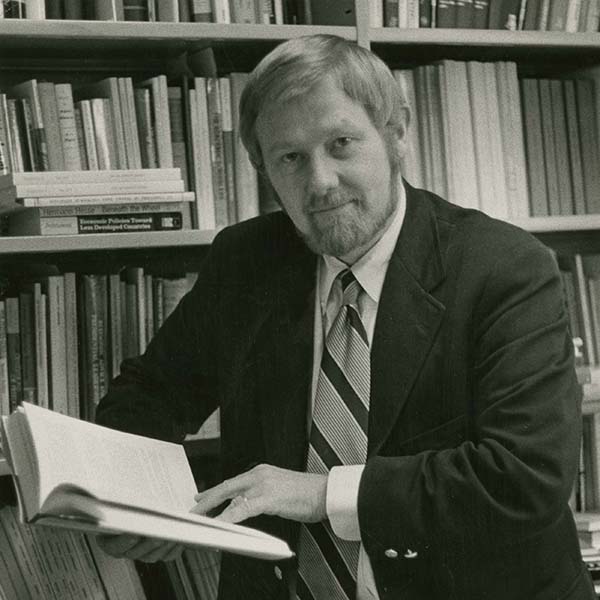
Many consider Olson's theory as merely an analytical tool. I disagree. It seems that many empires, like Romans or Ottomans in their very beginnings were quite literally bandit gangs. That's why we have so few records from their beginnings. They didn't care about records back them 
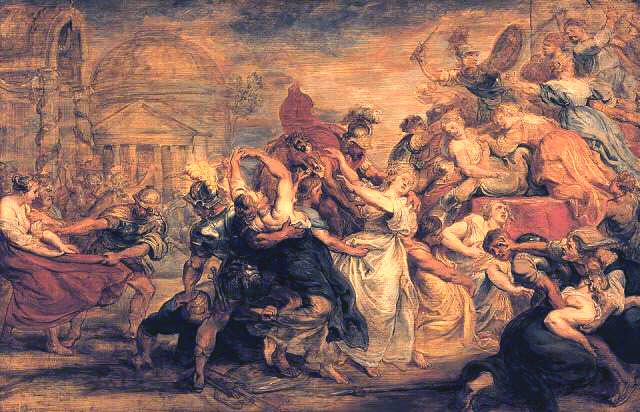
Well, in this context it seems that a cartel like Jalisco is a protostate. In fact, it has many state attributes and might not be so different from medieval "states" which we retrospectively glorify. That's understandable. But why avocados? Why not chairs, not smartphone apps? 
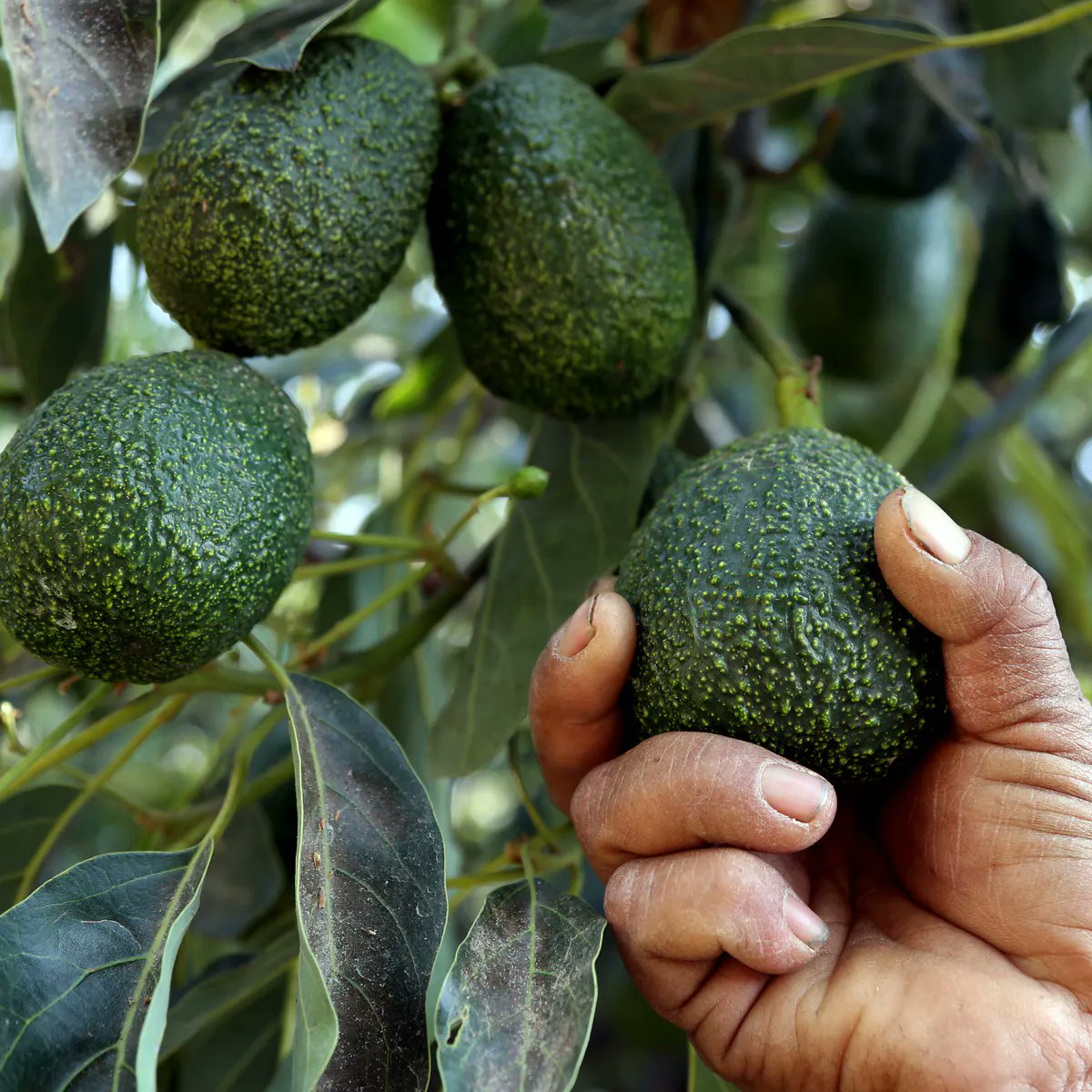
Mafia is quite simple. It can't administer something complicated without either destroying the production completely or evolving to something that wouldn't be a mafia anymore. If they entered machinery production for example, they would either go bankrupt or stop being a mafia 
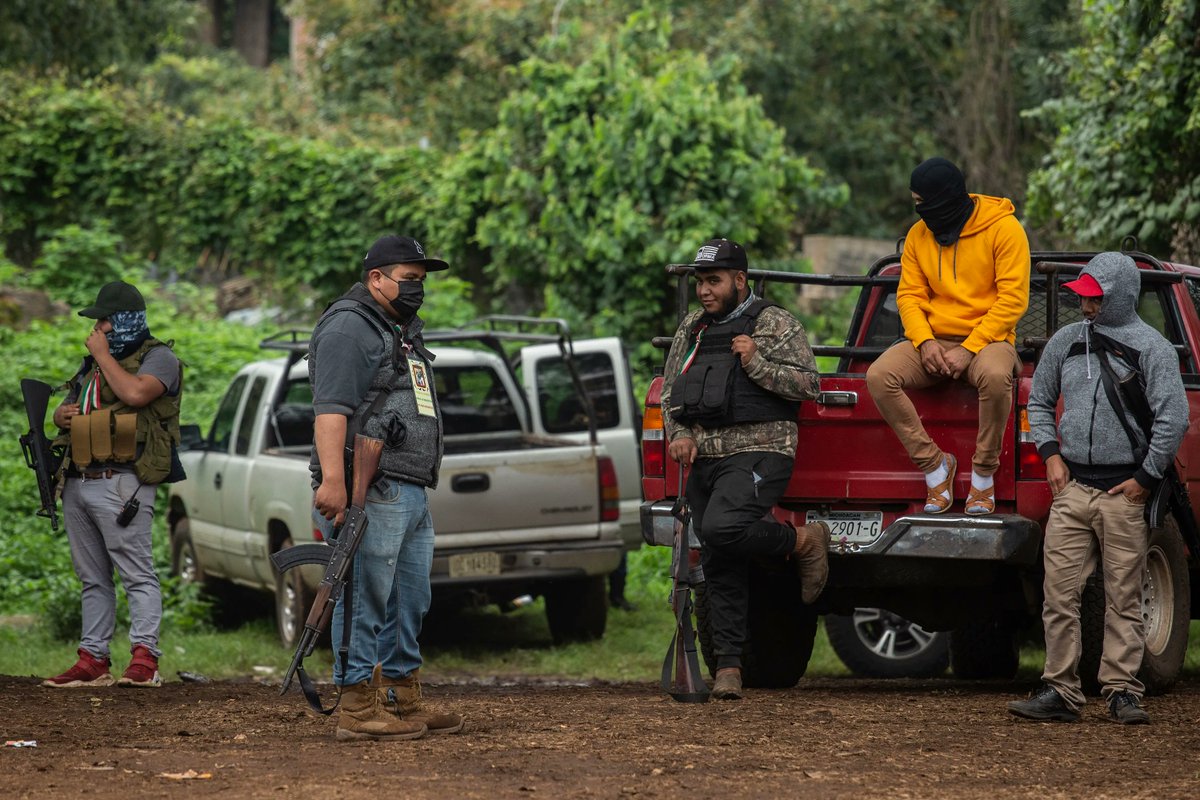
Imagine if they entered some complicated business and had to directly engage into a Schumpeterian Creative Destruction. Soon they would have to recruit nerds. Then promote them. And eventially the balance of power *within* mafia gang would irreversibly change in favour of nerds 

I'd argue that processes critically important for an organisation's existence define its evolution. If sth is existentially important, those providing it will have more leverage. And former strongmen become irrelevant. That's how many mafias of old evolved into sth different
Ergo. Economic processes aren't neutral power-wise. That's a major factor of evolution of power structures. That would also explain why many in power would sabotage economic development. If it's too complex for them to administer, it will change power balance not in their favour 
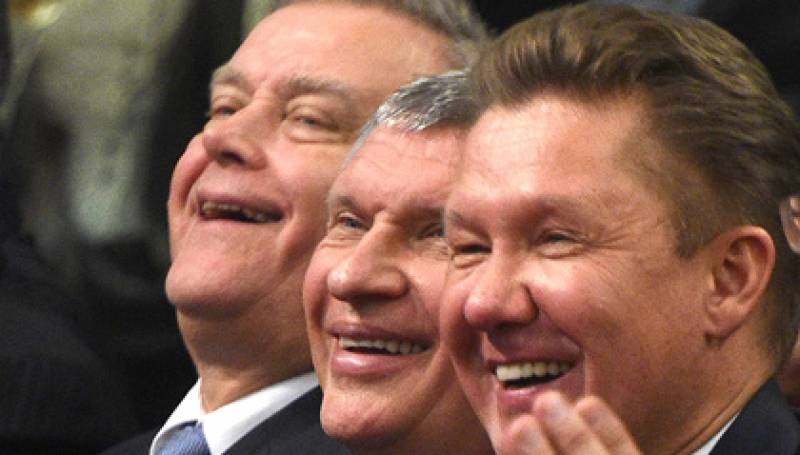
That's why cartels choose avocado. It's resource extraction providing tradable goods for export. Perfect forage base for a mafia. They get them through violence&threats. So they must project violent, unpredictable image. Thus US have to sanction cartels and ban avocado imports 
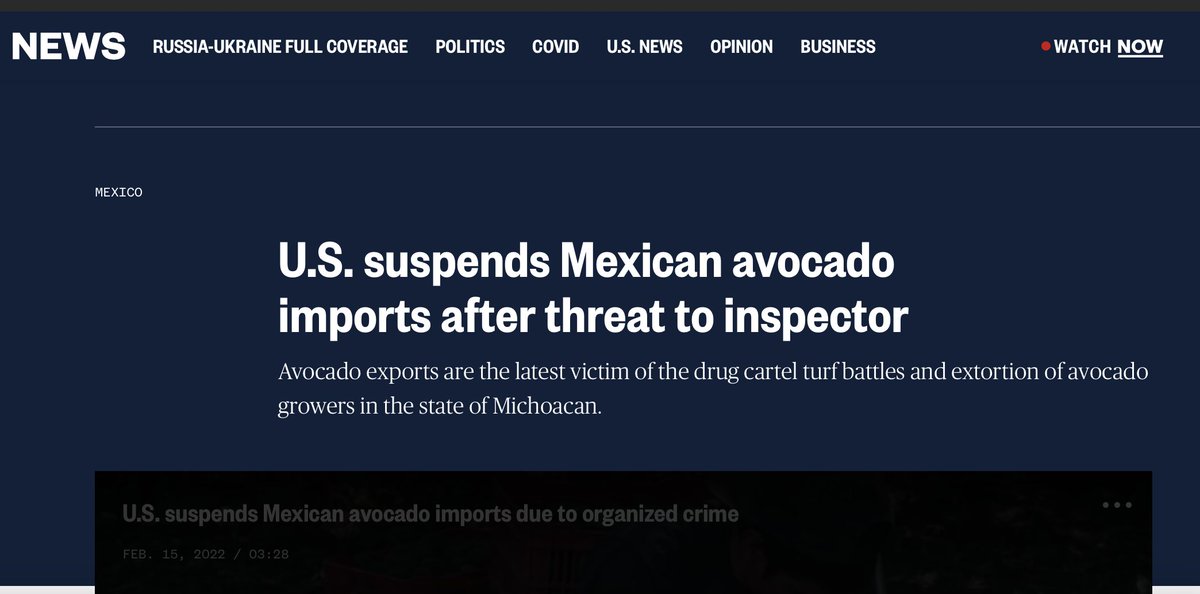
That's why cartels do so much seemingly needless violence. It's not "irrational" as some idiots who never ran a proper cartel would presume. It's perfectly rational. Violent image is a means of production for these guys. If they don't look scary, who's gonna give them avocados? 

Z-guys are not that different from Jalisco cartel. Putin's moves make more sense if you consider that Russia is run by a mafia. By a criminal group which extracts tradable export goods through violence or threats. Violent image is Kremlin's means of production and must be kept 

Let's make a simple visualisation of dominance hierarchy within Russian economy. Oi &gas are the simplest lucrative industries. Thus they are dominated by Putin's friends - the most mafia-like interest group. Metallurgy is more complicated. So it's run by old 1990s oligarchs 
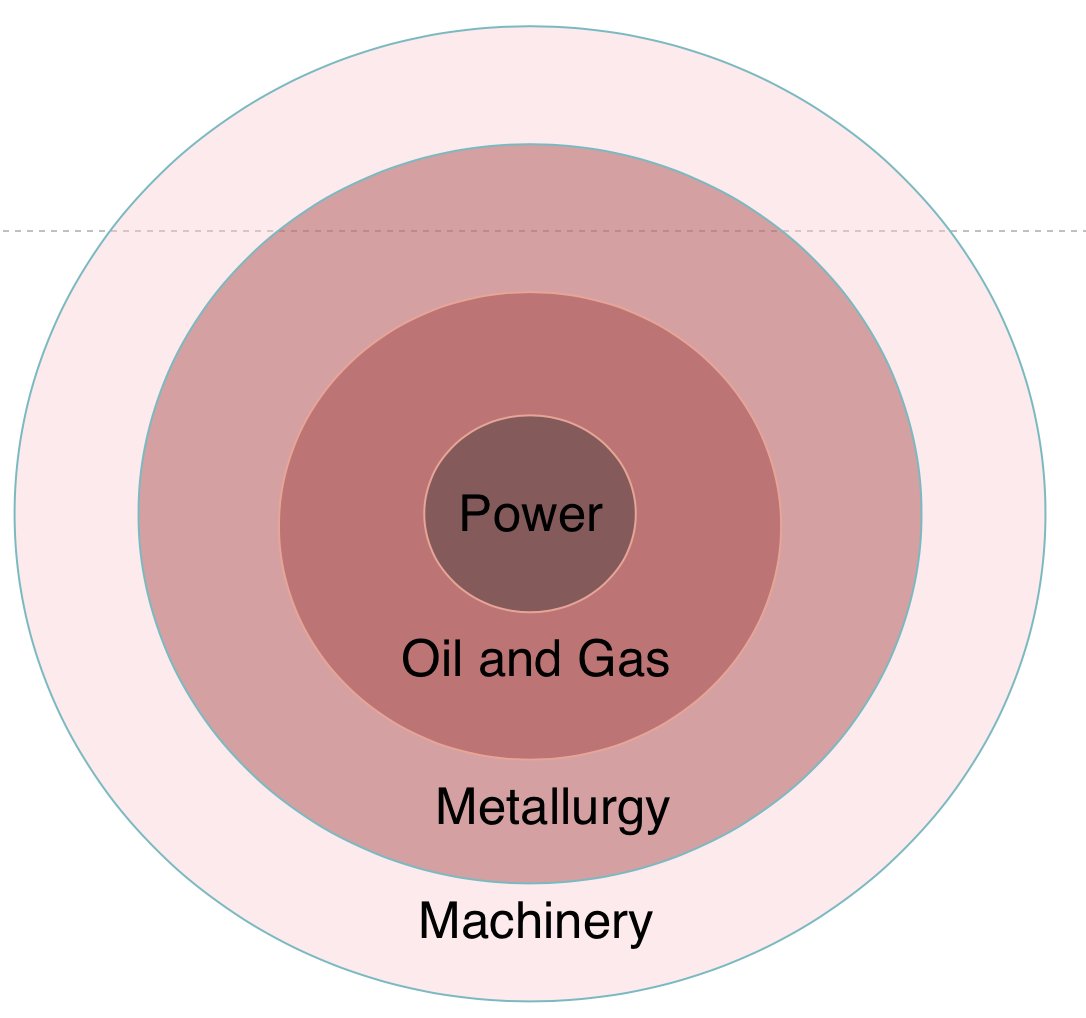
Why old oil and gas tycoons were expropriated, while metallurgy oligarchs were spared and largely remained rich through the entire Putin's era? Because metallurgy is too complicated for Putin's friends to control it directly. They spared it, because they are too mafia to run it 
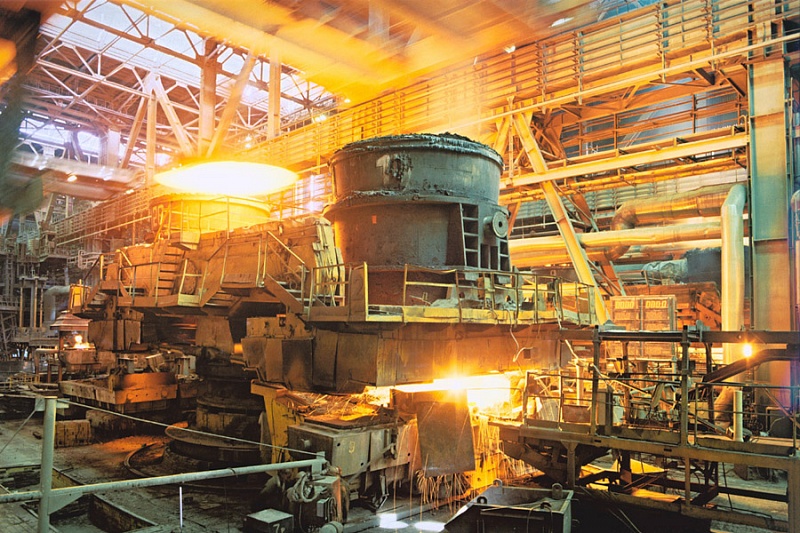
The closer you are to the seat of power, the more mafia like and thus simpler you are. You are just unable to administer anything complex. That's why the highest-ranked and the simplest interest group took oil and gas - something they could rip off without destroying. immediately 
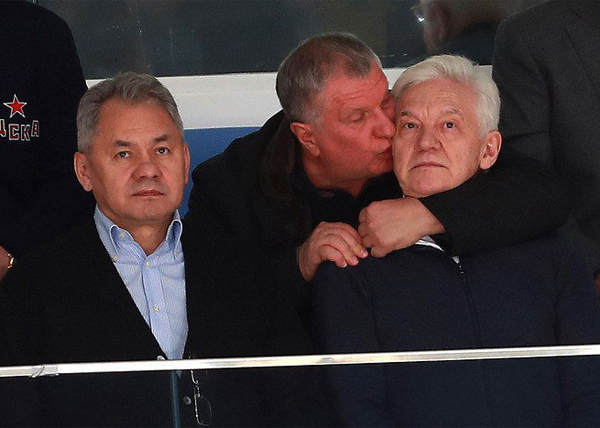
1990s oligarchs are more complex but lower in dominance hierarchy. They took something that they could administer without ruining it immediately - the metallurgy. Ofc they're ruining it slowly. They're depleting old deposits without developing new ones. But it will take time 
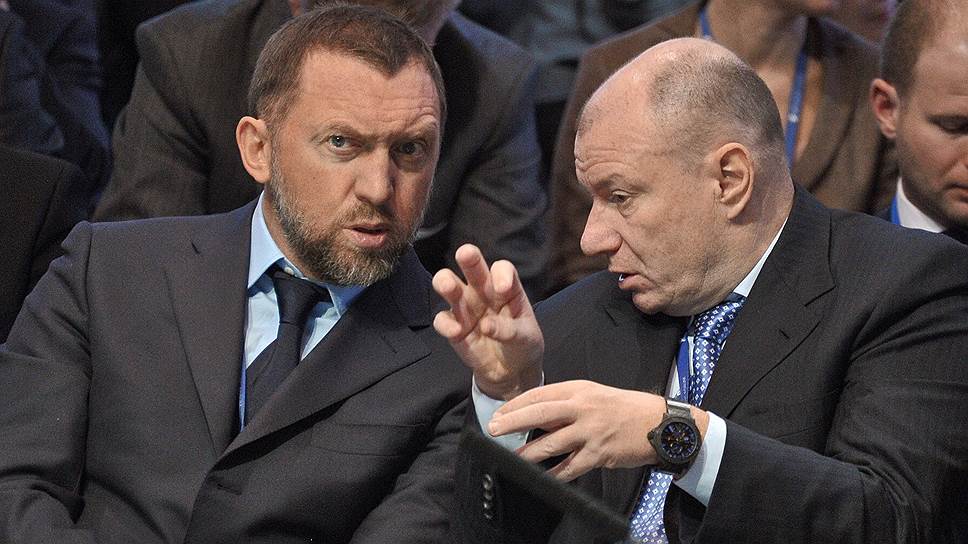
And only really complex stuff like competitive machinery is left for nerds like a nengineer Skurov - the owner of that mining machine producing factory I talked about. That's very important. Complex machinery is administered by guys who are very low in Russian dominance hierarchy 
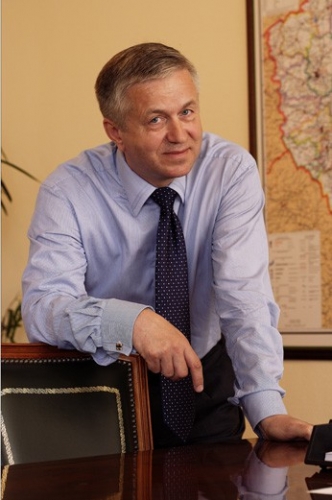
I'll make a small pause and continue
That's quite important for understanding the economic prospects of Russia. Complex industries, especially hardware industries are run by very weak interest groups. Higher-ups tolerate the nerds because someone should do it, but they'll milk those miserables dry
Consider the Uralkali - a major potassium fertiliser producer. Considering that it's an extractive business, who do you think controls it? One could assume it will be controlled by a very powerful (and simple) interest group, by a textbook mafia 
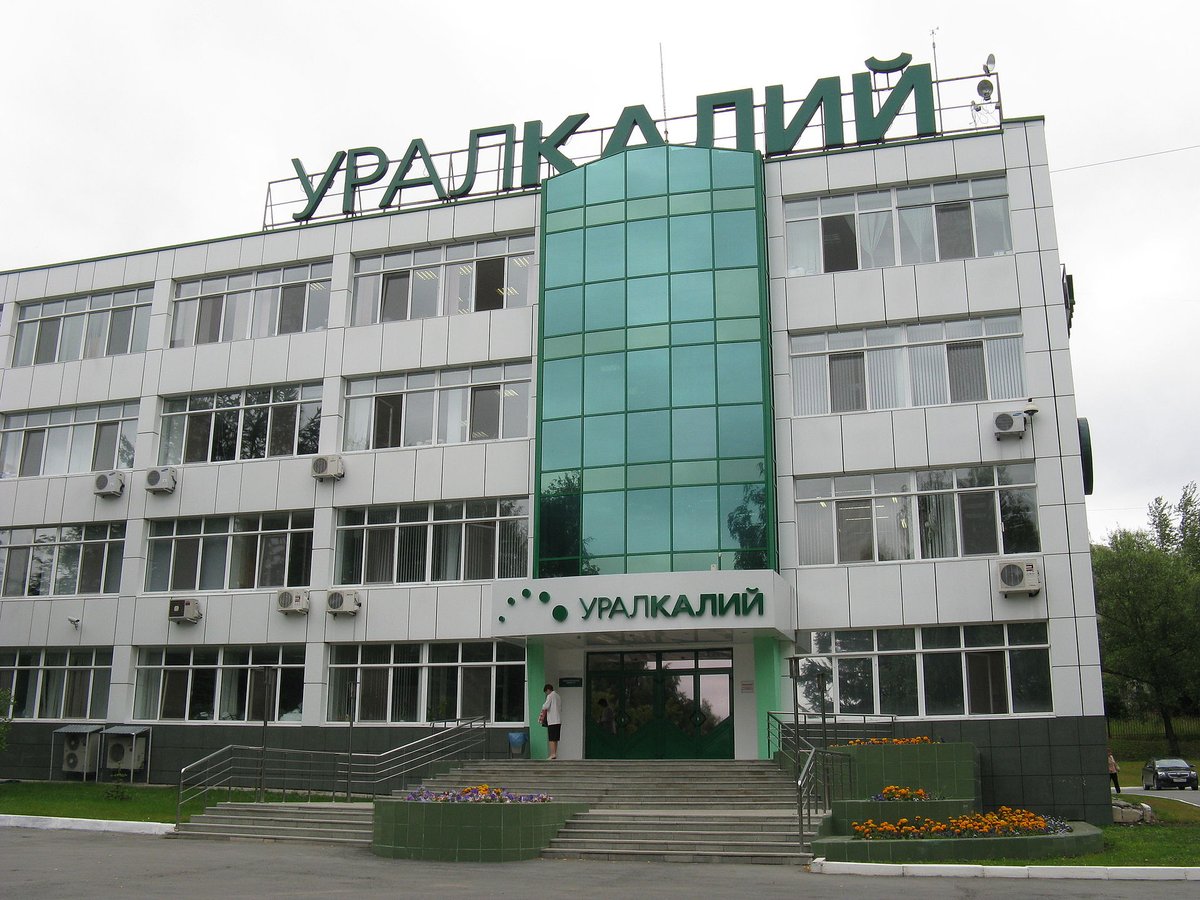
Indeed. Its chairman it's Chemezov, a good Putin's pal since 1980s. In a country like Russia, any extractive business producing tradable export goods, like avocado or potassium, will be probably controlled by some sort of a cartel. And Putin's friends are very cartel-like 

Unfortunately, the extractive business of Chemezov's cartel is critically dependent upon mining machines produced by a stupid nerd Sakurov. Chemezov doesn't know how to run a machinery plant so he has to tolerate existence of this deplorable engineer 
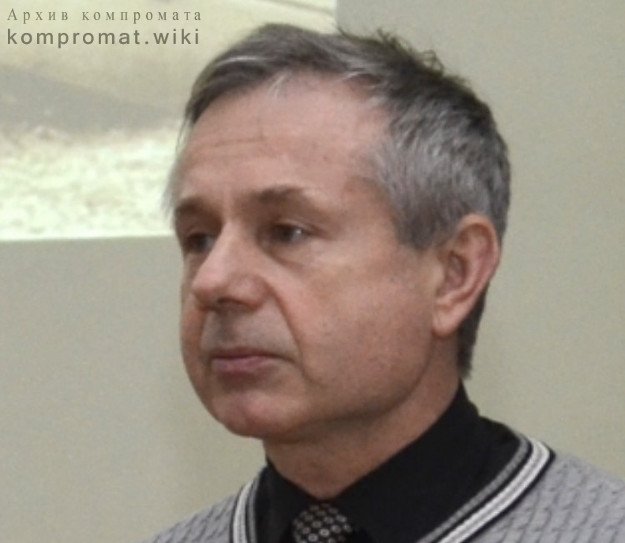
After Russia annexed in Crimea in 2014, the ruble dropped immediately. Is it good or bad? Putin explained it's very good. Previously exporters sold their goods for 1 usd and got 32 rubles for it. And now they'll receive 45 rubles for the same goods. Our budget revenues increased! 

Russian export structure is very simple. Russia doesn't really export much complex stuff. Meanwhile extractive businesses are overwhelmingly controlled by Putin's friends. So he naturally cares about exports (of natural resources) a lot. That's a forage base of his close circle 
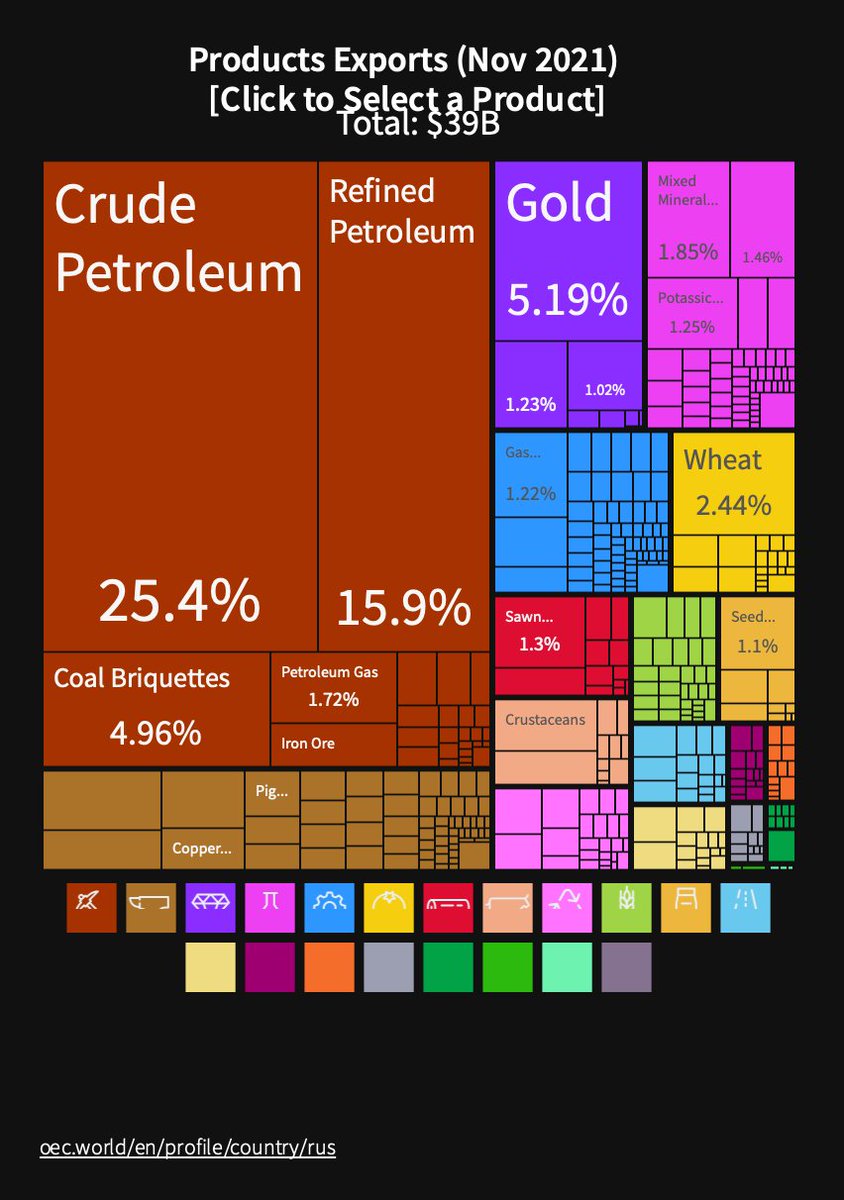
In this paradigm falling ruble wasn't a problem: exporters (of natural resources) enrich. The problem however, is that producers of anything complex work on Western machines with Western technologies and Western details. Ruble falling, their cost of production skyrockets 

Consider the cost of Урал-20Р mining machine produced by Sakurov. In 2014 it increased by 23,1%, in 2015 — by 29,9%, and in 2016 by 72,2%. With the ruble falling and the sanctions imposed, machinery cost in Russia was rising very quickly. Cost of maintenance and repairs rose, too 
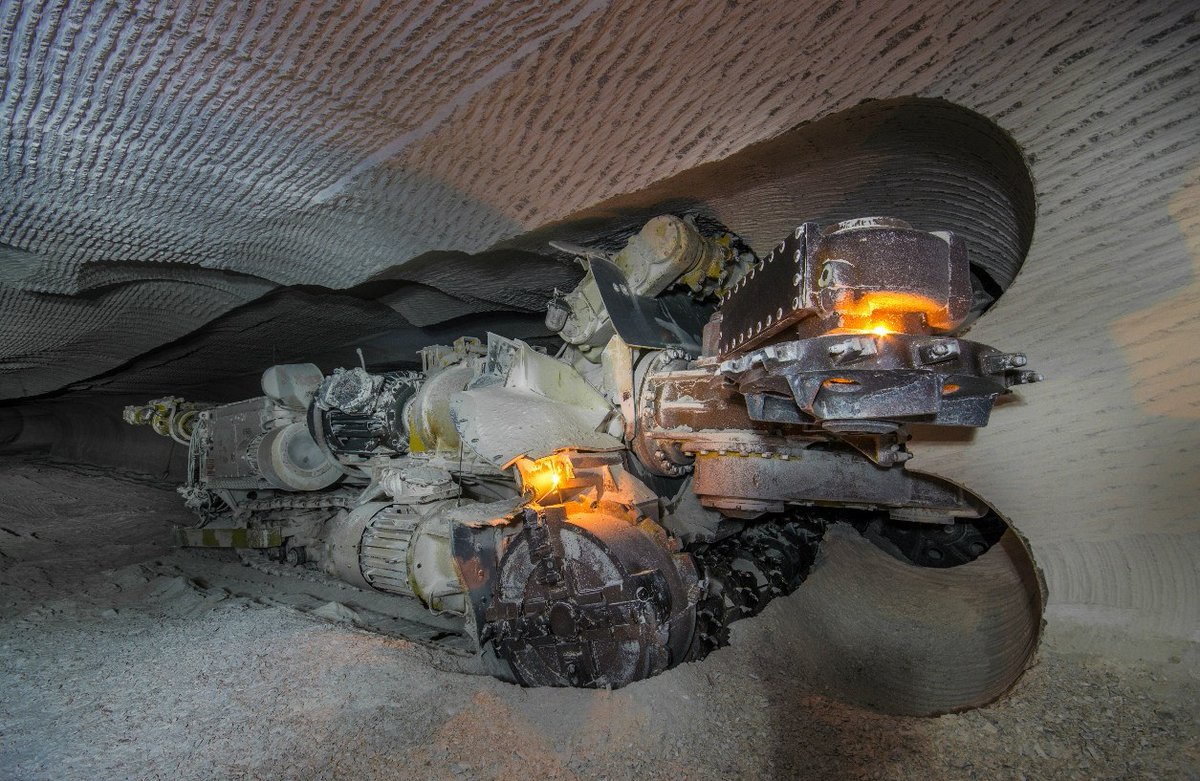
There was another factor behind the rise in production costs. Ruble falling, exporting metals abroad was more lucrative. So metal prices on Russian market skyrocketed. See how prices on various kinds of rolled steel increased for just 4 months of 2016. Cost of fitting doubled 
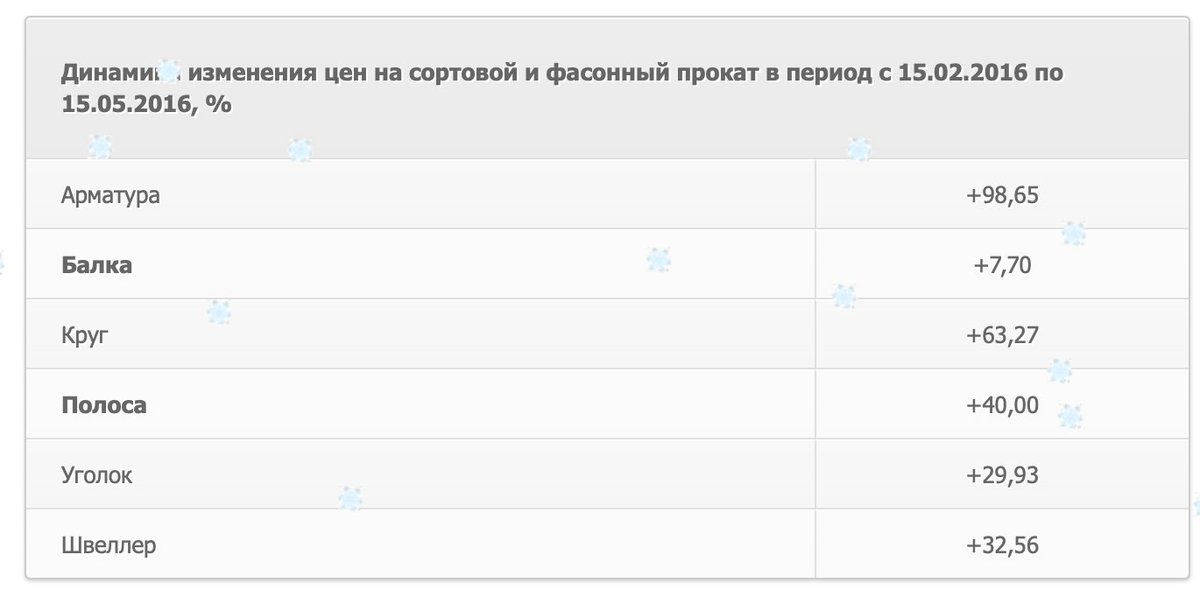
Ruble falling, costs of everything ncreased. Cost of oil, of metals, of machinery. But oil and even metal production are controlled by powerful interest groups. So they were allowed to enrich freely. The more dominant you are, the more extractive industry you appropriate 

But the low in dominance hierarchy machinery producers started rising prices too. That was unacceptable. Very soon Chemezov organised a PR campaign against greedy Sakurov. That's just one article by a state-owned Rossiyskaya Gazeta. It's unaccessible but you can still google it 

And yet, nachinery producers objectively couldn't keep the prices low with costs of everything rising. Technically Chemezov could use force to oust his supplier from his business. If it was extractive business, he would just do it. But it was too complex for him to administer 
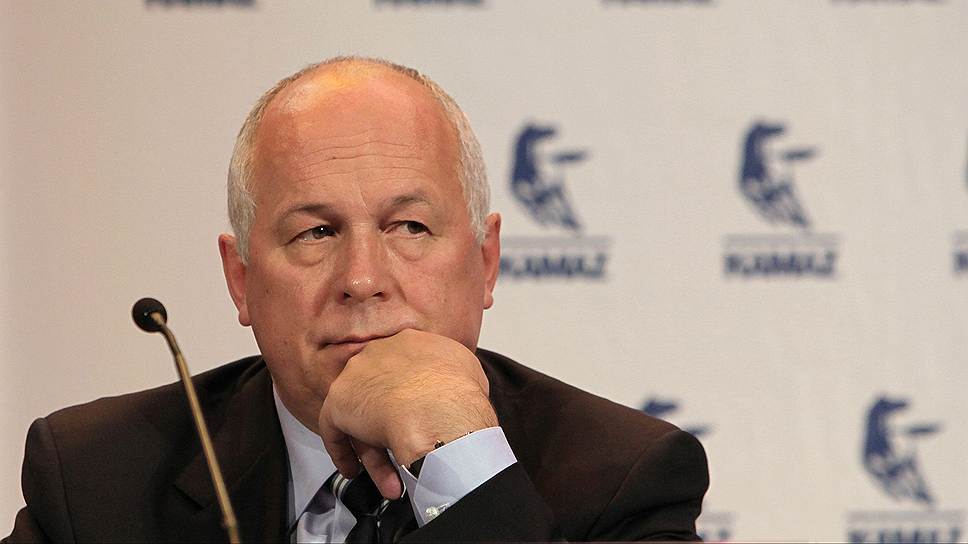
So what did Chemezov do? He decided to outsource machinery supply to Czech Republic. Putin's friend declared that repairing existing mining machines Урал-20Р in Russia is "too costly" and made a contract with Czech company T-machinery to repair them in Czech Republic 
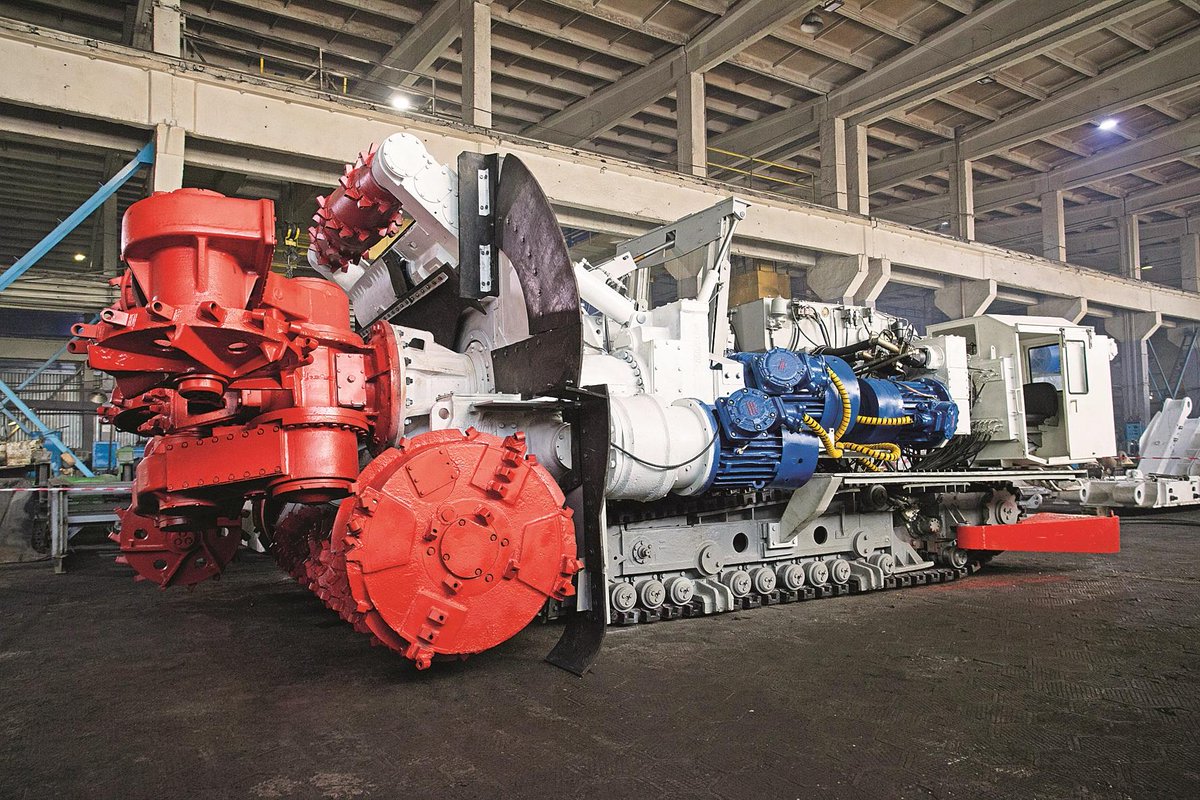
This version however, sounds very dubious. Sending Russia-produced machines to Czech Republic just to repair them and save the costs doesn't really sound convincing. Some speculated that the real reason was not "repairment" but outsourcing production abroad
The entire case with "repairment" makes more sense if Chemezov wanted Czechs to dismantle these machines, copy them and produce themselves. If Putin's pal sabotaged the entire import-substitution agenda, trying to transfer existing Russian technology abroad, it all comes together 
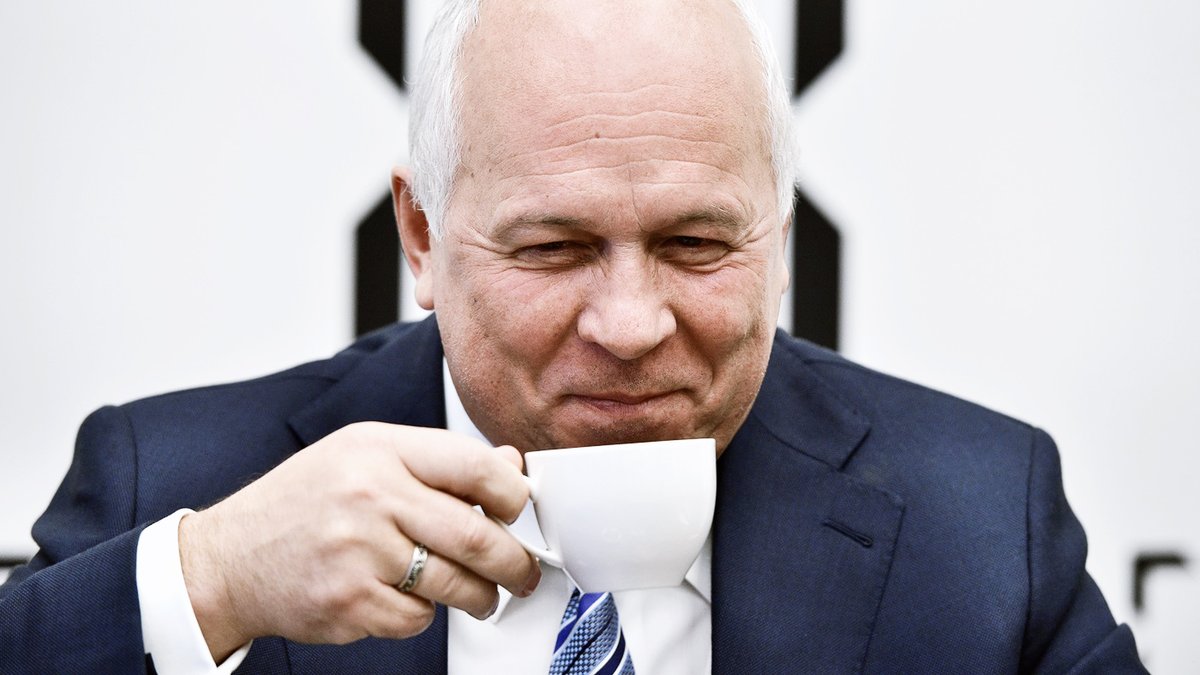
You can hardly save money by sending Russian-produced for "repairment" to Czech company which didn't produce them and doesn't know how. But you probably can do it, if you just steal Russian technology and transfer it to the EU. Wit the economy of scale, you might get it cheaper 

Besides, financial consideration, there is certainly a power-motivated one, too. If you allow your Russian machinery suppliers to enrich, that's problematic. The richer they get, the bigger the risk that the balance of power might be changed in their favour. Unacceptable
Allowing Czech companies to enrich is safe. Cash earned by Czechs most probably won't be invested in redistributing power within Russia. Meanwhile, the money acquired by a wrong interest group in Russia absolutely can. Thus growth of complex machinery in Russia presents a risk
Let's sum up what we discussed today. Economic activity which organisation relies upon is not neutral. It determines direction of its evolution. Thus economic progress (=development of complex economic activities) presents a clear danger to existing mafia-like interest groups
The more mafia-like you are, the simpler you are, the less able to administer complex economic activities. If you engage in them, power balance within your structure will change and former strongmen might become irrelevant. Mafia can remain mafia only feeding of something simple
Extractive businesses are relatively simple in a sense that they can be administered by mafia for very long and still produce value. Of course they're being destroyed too but in the long run, so nobody cares. Complex businesses will be destroyed immediately
That's why dominance hierarchy in Russia negatively correlates with economic complexity. The most dominant and simplest interest group, Putin's friends, appropriated oil and gas. That's just like cartel appropriating avocado
Less dominant group, 1990s oligarchs, were allowed to keep their metallurgy production. That's still quit extractive, but too complex for Putin's friends to administer. To be honest, it's too complex for oligarchs too, but they're smart enough to destroy this industry slowly
Meanwhile really complex industries such as competitive machinery production are mostly run by low in dominance nerds. Which means they won't be allowed to grow. If extractive businesses can rip them off, they will. If they can't, they'd better transfer their production to the EU
Outsourcing anything complex to the West is preferable not only because of the economy of scale - a company working for a EU market will probably make cheaper product than a country locked within the Russian one. It's beneficial because it allows not to pay to internal rivals
Domestic production is not neutral. If you 1) can't directly control complex industry 2) allow it to enrich, you feed a rival interest group which will become more powerful over time and then might demand the redistribution of power. That's unacceptable
This makes actual import substitution dangerous and outsourcing anything complex abroad - safe. Every dollar you spent on Czech machinery is a dollar not acquired by a rival interest group in Russia that might attempt to topple you in the future
This sociopolitical context makes any serious import substitution or self-reliance absolutely unrealistic in the short run. With the current power balance and the current institutions, Russia simply can't do it, because powerful cartel-like interest group will sabotage it
Could it change in the future? Yes. Nowadays regime is very, very frightened. It feels the existential threat. Which means that if it survives current conflict and allowed to regroup it could potentially evolve to something much more efficient. It's possible. It just takes time
Finally, from the mafia perspective, making seemingly irrational aggressive moves is totally rational. Mafia extracts resources through violence or threats. Impulsive and unpredictable image is a means of production and any decent mafia has to invest in maintaining it
I believe Putin's invasion of Ukraine is fundamentally rational decision. He used this trick several times and previously it always worked. He had every reason to believe it would work now too, as he didn't expect any serious resistance (neither did most military experts)
I don't think that Putin's decision was insane. I think it was a pragmatic move, based on wrong assumptions. Which is understandable: higher-ups often suffer from deficit of accurate information since subordinates just report them whatever higher-ups like to hear. End of 🧵
• • •
Missing some Tweet in this thread? You can try to
force a refresh





